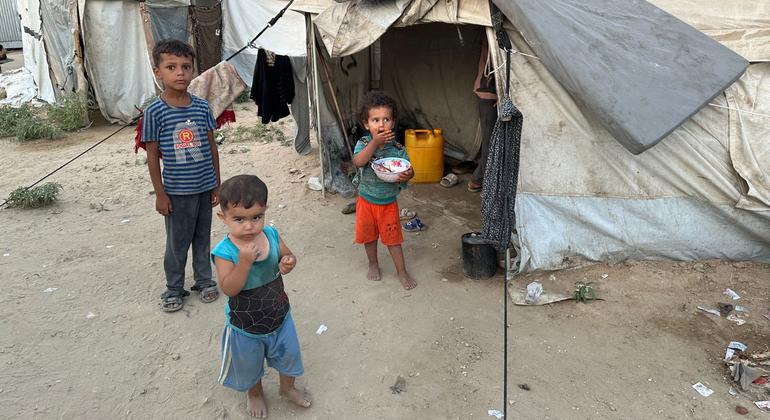

Head of the UN World Health Organization (WHO) Tedros Adhanom Ghebreyesus expressed deep concern at the development and said that the infant, from Deir Al Balah, developed paralysis in the lower left leg but is now in a stable condition.
In an online post, Tedros added that the UN health agency had confirmed via genomic sequencing that the girl’s infection was linked to the poliovirus type 2 variant, detected in environmental samples collected in June from Gaza wastewater.
High risk of spread
He said that given the high risk of poliovirus spread in Gaza and the region, the Palestinian health authorities together with the WHO and the UN Children’s Fund, UNICEF, “are working to implement two rounds of polio vaccination in the coming weeks to halt transmission”.
The UN agency for Palestine refugees, UNRWA, added that its medical teams will support the delivery of vaccines to its clinics and mobile health teams, in partnership with WHO and UNICEF.
UNRWA is the largest aid agency in the Gaza Strip and remains a major actor in the health sector, providing health services across 10 primary health centres and up to 100 mobile medical points.
The development comes as the UN’s top aid official in the Occupied Palestinian Territory warned that mass evacuations in Gaza “choke (people’s) survival” and continue to severely constrain aid operations.
During August alone, Israeli forces “issued 12 evacuation orders, forcing almost 250,000 people to move yet again”, said Muhannad Hadi, Humanitarian Coordinator for the Occupied Palestinian Territory.
Running into danger
“If evacuation orders are meant to protect civilians, the fact is that they are leading to the exact opposite,” he insisted. “They are forcing families to flee again, often under fire and with the few belongings they can carry with them, into an ever-shrinking area that is overcrowded, polluted, with limited services and – like the rest of Gaza – unsafe.”
Because of being repeatedly uprooted, people are also unable to access services “essential for their survival, including medical facilities, shelters, water wells and humanitarian supplies”, Mr. Hadi continued.